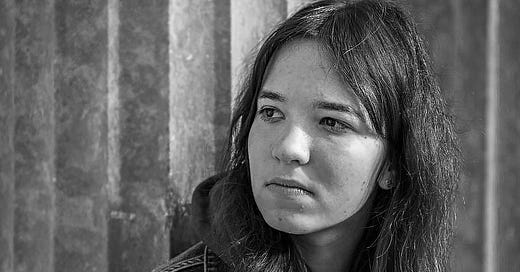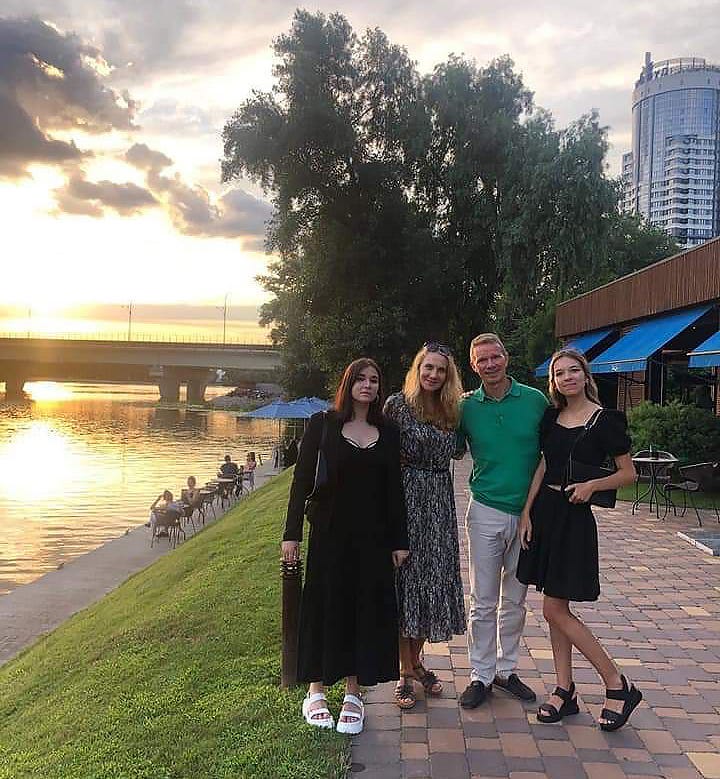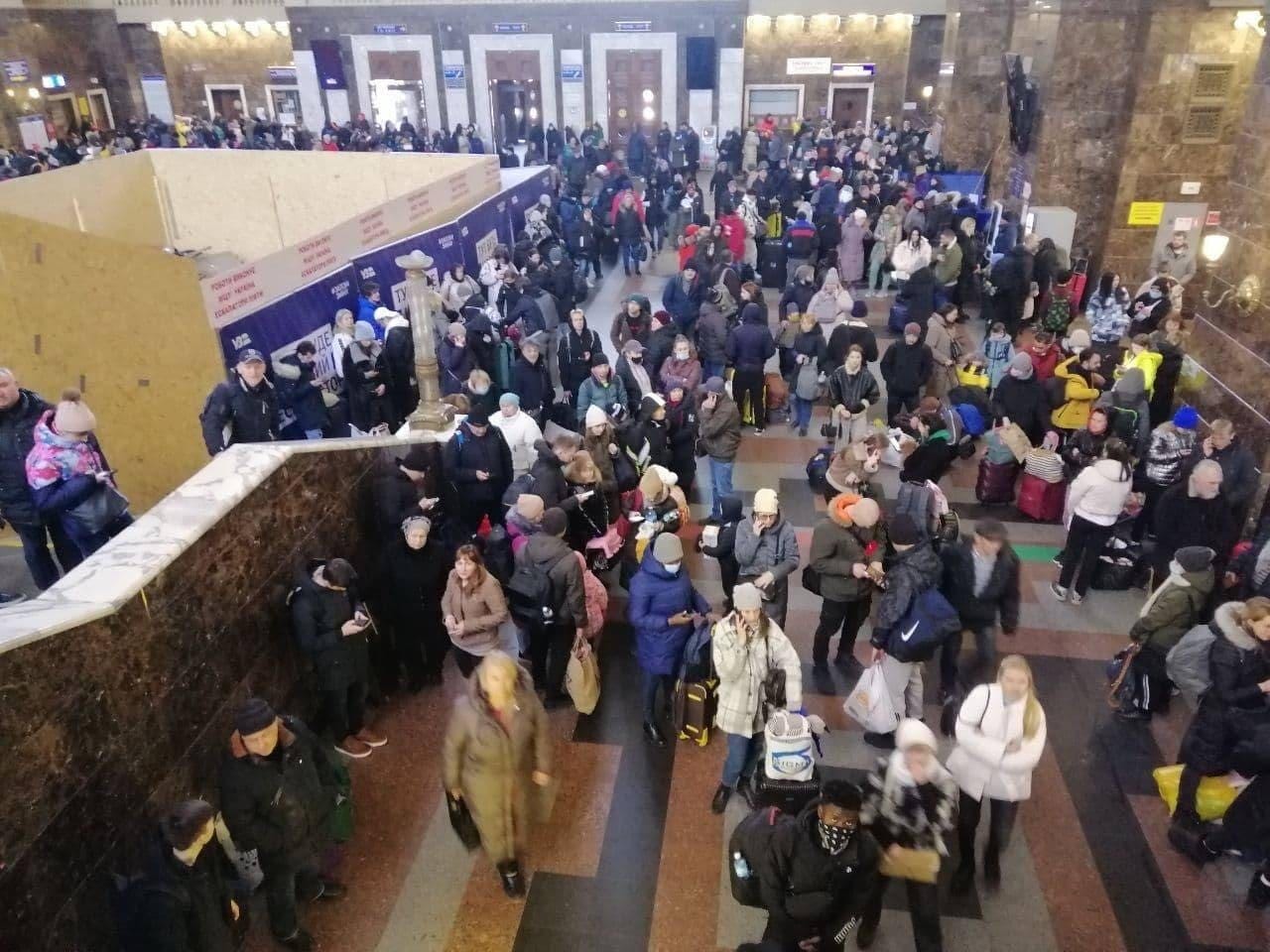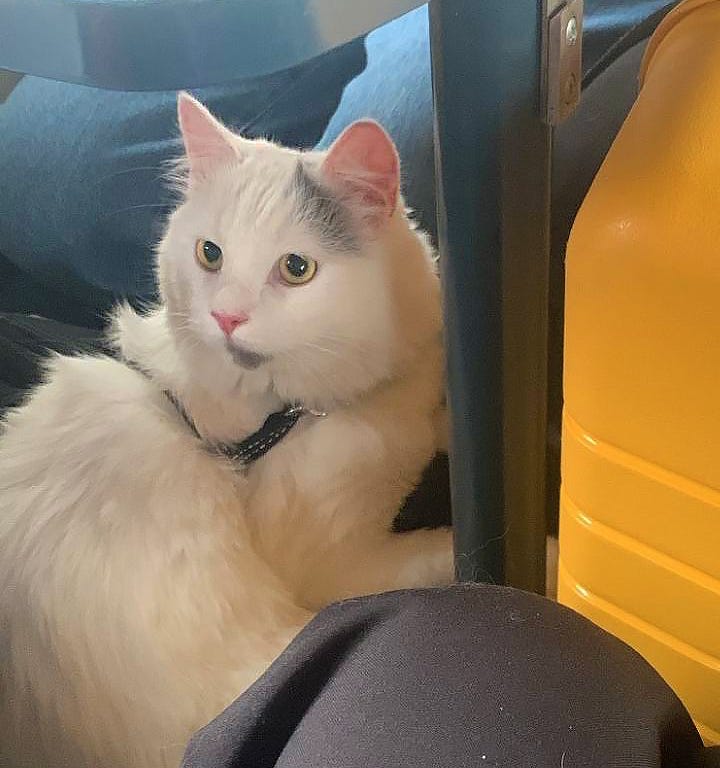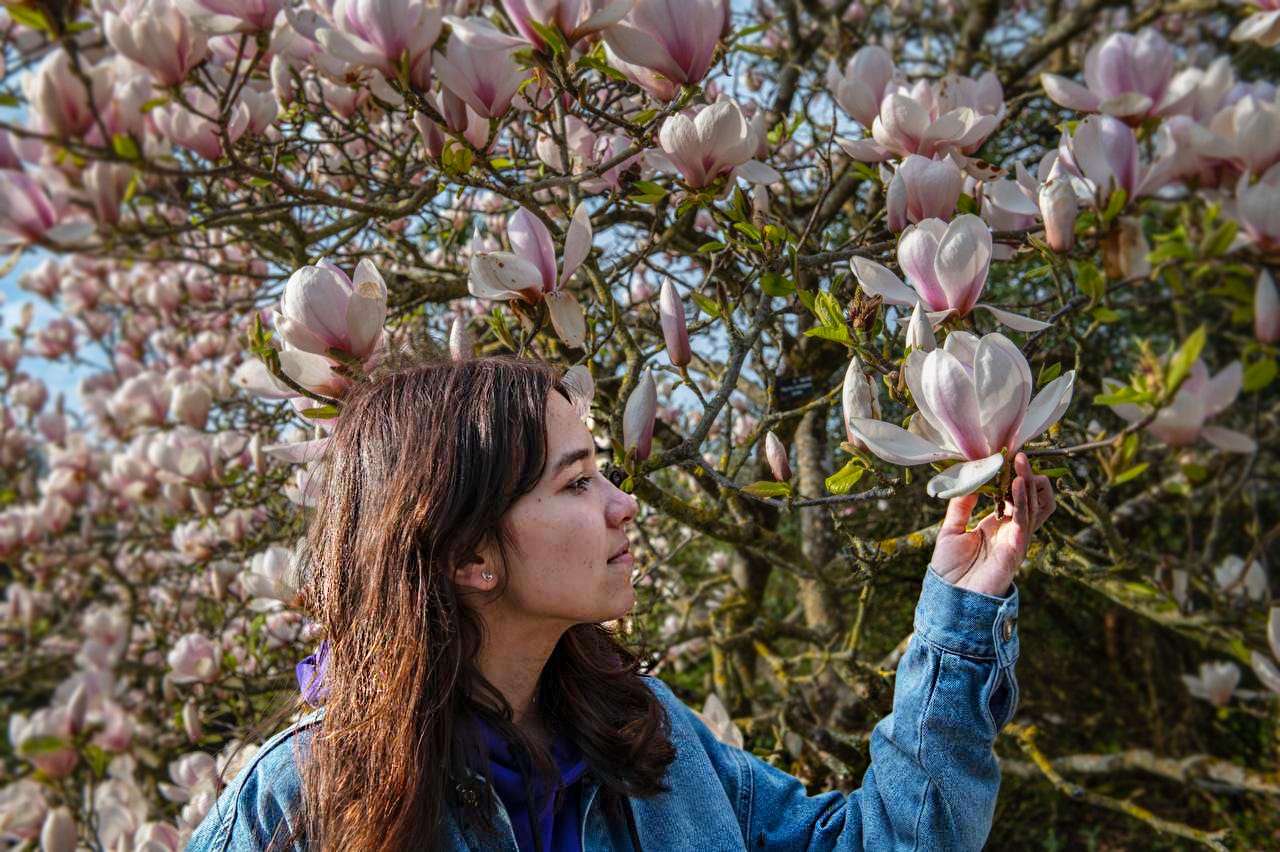In my own words: from Kyiv to Cork
19-year-old Alisa Salenko is a journalism student from Kyiv who arrived on her own in Cork last month. She writes about leaving home and family, and the journey that got her here.
War: a relic of the past, returned?
It always seemed to me that war was a relic of the past and that only older generations can remember it.
My grandfather fought in WWII, a long time ago. He used to tell me what life was like at that time. Back then I took it like something unreal, similar to stories of older generations that didn’t have mobile phones or Internet connections and couldn’t simply phone each other and arrange meetings.
Of course, I realised that in some countries war is a big problem which still exists, but I couldn’t even imagine it would happen to my motherland.
Life in Kyiv
I lived in Kyiv all my life. I admire my city; its architecture is incredibly beautiful and I really enjoyed walking through cosy streets and yards with my family or friends.
I am a student of Taras Shevchenko University, where I have studied journalism for two years. I am also into music and poetry, so playing guitar, singing or writing rhymes is definitely my cup of tea. Sometimes my classmates and I would organise a kind of meeting where we could play some instruments together or read our poems. It brought me inspiration and I always looked forward to spending evenings like that.
My father, Igor, had his own small business in football supplies and my mother, Oksana, was a housewife. I am a twin: my sister, Ann, attended the same university as me but with a different specialisation. She studied languages.
I had an ordinary life and I was happy about it. But one day everything completely changed and divided my world into “before” and “after.” Now, I don’t know for sure if it will ever be the same again.
Woken by explosions
I will remember this date my whole life: February 24. My parents and twin sister and I woke up at 4am because of explosions. We couldn’t clearly understand what was happening and thought it may be some industrial accident or something like that. But then news was reported that Russia had begun a full-scale invasion of Ukraine.
We got information from TV channels and Telegram channels, like Radio Svoboda or Hromadske. We also received a call from our relatives who live in Cherson and they said the city was on fire and was heavily bombed.
At first, the news was only published in some news sources, and then there was a presidential speech in which he said the war has begun. I tried to deny it to myself: I couldn’t understand clearly what was happening and couldn’t believe all those sources until the presidential speech appeared on TV and the internet.
To be honest, I hoped it was fake even when official sources published this information. But how can you deny something you heard with your own ears, something that is happening very close to your place? It was shocking and very scary, just like in those stories my granddad told me. And it was reality.
Air raid sirens
The next few days were kind of a blur. I was on my phone all the time, checking news and calling my close friends and relatives to find out if they were okay.
Then we heard a loud noise outside: an air raid siren that means all civilians should proceed to shelters. The nearest place to us was the basement of our house and we stayed there all night with some of our neighbours. It was dark, damp and cold there and we couldn’t sleep or relax. Every hour or two we heard an explosion. I thought, what will we do if the next bomb gets into our house? At 6am we returned home and decided to leave Kyiv as soon as possible.
We stayed home for a week and just tried to plan what to do next. I could not eat and sleep normally. I just sat in the corner of my room on the bed: the news reported that the places near two walls are the safest, but that the most important thing is to keep away from the windows.
A couple of times, I heard explosions on the street. These were quite powerful, but we did not go down to the basement; it was too hard to be there.
The train to Lviv
Soon we decided to leave for Western Ukraine. We didn't know exactly where, but it was relatively quiet there and that's all that was important then. There was a train running to Lviv, the largest city in that area, free of charge. We took the nearest one.
It was very challenging to do because of the huge amount of people and we hardly got into the wagon. When we entered, there were no free seats. We realised we would have to stand for 10 or more hours, with heavy baggage in our hands because there was no place to put it. I felt I would lose consciousness because of the heat.
We met some kind people who allowed us to put our luggage under their seats. It was a huge family who was travelling to Canada from Kharkiv, a city that was under heavy shelling at the time, and they even allowed us to sit from time to time.
There was a boy of my age in that family. He said that a house near where they lived had exploded and he had seen it with his own eyes. After that, he couldn't sleep normally because of nightmares. I cried a couple of times on the train. It was too difficult to hear and realise all these things.
From Lviv, we went to Polyana, a small country village almost on the border with Hungary. It's very green and beautiful there. We were given the opportunity to rent a room there, which we did. It was mostly quiet. Sometimes we heard air raid sirens, but it was still difficult to detach myself from all the events and I was under constant pressure that something might happen.
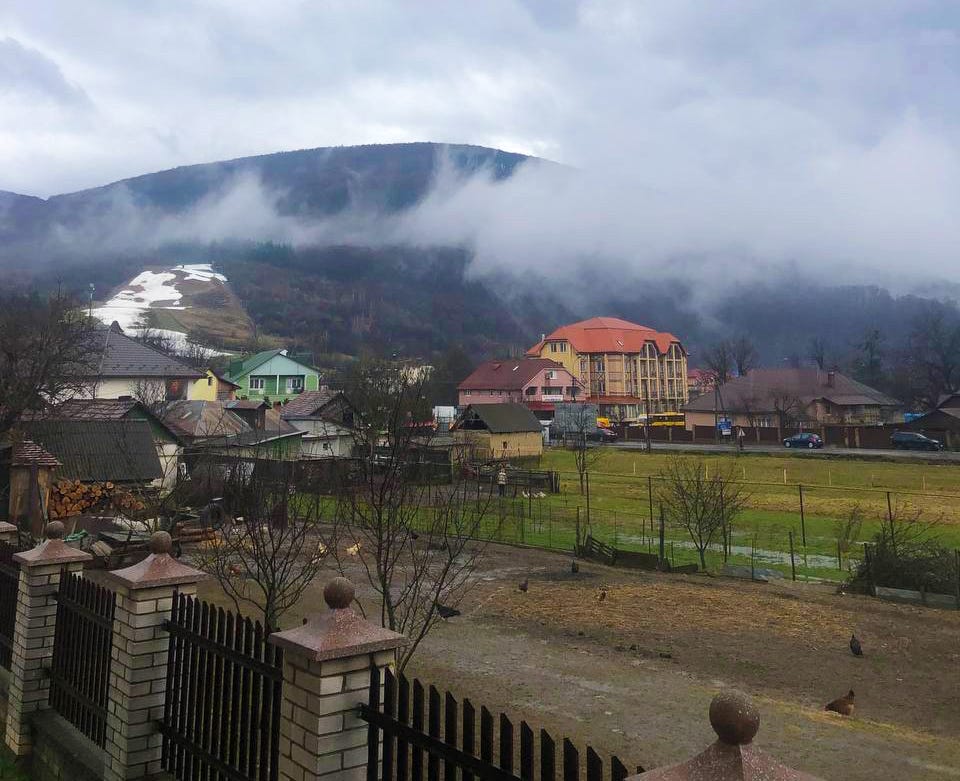
Leaving Ukraine….alone?
A week later, my dad came to my and my sister’s room and said that it was possible to go to Ireland, to the city of Cork, to live there with the ex-wife of his good friend and her family.
I asked him if he, my mother and my sister would come with me. He shook his head. My father is at the age when it’s forbidden to leave Ukraine: legally, all men between 18 and 60 must stay, even though his health wouldn’t permit him to fight. My mother couldn’t come either because of my grandmother, who needs help with food and stuff like that.
My sister Ann’s boyfriend had gone to fight in the war and she too refused to leave. I felt shocked. I couldn’t imagine to leave my country without my family. I was so scared to do it alone. But I agreed. Despite all my fears the only thing I wanted is to be safe.
My father bought me plane tickets and found out how to get to Budapest, because the flight was from there. The best option was a train, so we went to a small city called Mukachevo to take it there.
A hug goodbye, and a train cat
I remember standing on the platform and hugging my parents and sister. There were a lot of people. The train was delayed so we had plenty of time to say goodbye each other. They said I was a smart girl who would deal with any difficulties and they wished me good luck.
The moment of waving to them from the window of the wagon also remains in my memory. I tried to remember to be a little bit excited and smiled as clearly as possible, because I didn't know when I would see them again. On the train, I cried again: it was so scary to be leaving my country and I did not understand what was happening.
On the train I met a very good family: they gave me food and talked to me a lot to bring my anxious thoughts away.
They had a cat in their carrier and sometimes they let him out and he sat on my knees. It brought me calm: I am really into animals, especially cats. By the way, on the train I noticed that many Ukrainians took their pets with them and did not leave them alone in danger, and I was very happy about it. I have three cats left in Kyiv with my grandmother and I miss them a lot.
The kindness of strangers
After a seven hour journey, the train stopped, but we were in the city next to Budapest. Workers said that the train no longer travelled and all passengers needed to buy a ticket for another train, which would bring us to the capital of Hungary. I was very worried then, but that family bought me a ticket. I am insanely grateful to them. We took the train together so I couldn’t get lost.
We arrived in Budapest at night. My trip to Ireland wasn’t for a couple of days, but I agreed in advance with volunteers through a website which helps Ukrainians to find places to stay that I could live with them. They were so nice, a young couple with a small child. They gave me a room, fed me deliciously, even took a short walk around the city. Then they gave me a lift to an airport.
I could never imagine that unknown people would treat me like that. I will never forget their kindness.
I have never flown on planes alone and I was very worried. Fortunately, everything went well, however, with a slight delay. We arrived at night, I was very tired, but I was immediately met in Dublin by a good friend of my father, with whose family I was going to stay. We spent the night with his friends from Ukraine. They turned out to be such kind and interesting people and I met a girl my age, also a Ukrainian, from Chernivtsi in Southwestern Ukraine. She invited me to come to her for a couple of days in Dublin, after I settle in Cork.
Now I am in Cork, and I live in a very pleasant and warm atmosphere in a wonderful family. They help me a lot, give me support and everything I need and constantly communicate and worry about my mental condition.
I think that I am lucky to get known such good people here. I fell in love with the city, too. These cosy and quiet streets remind me of Kyiv and bring the same calm and inspiration I had when I walked through my native city. So good memories, to be honest.
The family who I live with also try to help Ukrainians who also came here and live in a hotel not far from our place: Jessie, the woman I live with, and her daughter Tilly often bring them clothes, toys for children and other necessities. I always go with them.
I am trying to get a job in the office to help the citizens of my country who come here with some documents and other staff or in the shop with humanitarian help for them. I want to help all Ukrainians as once other kind people helped me and continue to do it.
I sincerely hope that soon war will be over and my family and all Ukrainians in general will be safe. I keep in touch with all my relatives and friends and try to do my best to help them. I am so proud of our nation, of being who I am. We will win, I have no doubt about it. And then I will hug all my close people and say how much I love them.
A note from Tripe + Drisheen: Alisa is a very talented young media student beginning a new life in Cork. When we met with her, we decided that giving her her first ever byline in Ireland might act as a helping hand on her way to a career in journalism.
Alisa was paid the same fee we offer all freelancers who write Long Reads for Tripe + Drisheen.
If you are a subscriber, we’re very grateful to you for helping to pay us and other journalists. If you’re not a subscriber, please consider that for just €8 per month, you can trust that we will use your money to fund worthwhile media projects. If you can’t subscribe, you can also make one-off payments via PayPal by clicking the button below.

